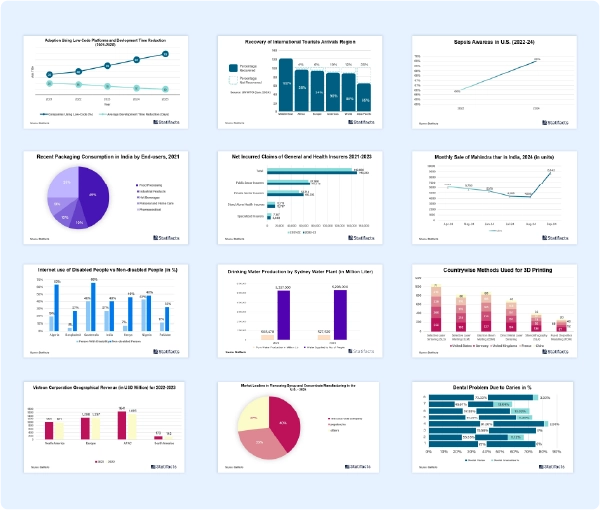The U.S. infectious disease in vitro diagnostics market size accounted for USD 7,510 million in 2024 and is predicted to touch around USD 9,800 million by 2034, growing at a CAGR of 2.7% from 2025 to 2034.
U.S. Infectious Disease in Vitro Diagnostics Market Report Highlights
- By product, the reagents segment held a dominant presence in the market in 2024.
- By product, the instruments segment is expected to grow at the fastest rate in the market during the forecast period of 2025 to 2034.
- By technology, the molecular diagnostics segment accounted for a considerable share of the market in 2024.
- By technology, the immunoassay segment is anticipated to grow with the highest CAGR in the market during the studied years.
- By test location, the central laboratories segment led the market.
- By test location, the point of care segment is projected to expand rapidly in the market in the coming years.
The U.S. infectious disease in vitro diagnostics market is driven by the increasing prevalence of chronic and infectious diseases and an aging population, which requires early detection, observation, and management of health conditions. The rising aged population is the key factor driving the growth of the US in vitro diagnostic market as the aged population requires early access to medication and diagnosis, especially the geriatric patient with chronic diseases who needs improved healthcare and technological advancements in diagnostic innovations, such as molecular diagnostics drive advancement in the market, leading to precise, sensitive, and fast diagnostic tests.
Infectious disease In vitro diagnostics (IVDs) are tests performed on clinical samples like blood, urine, or tissue to detect diseases and infections outside the human body. They play a crucial role in early disease detection, timely treatment, and preventing the spread of infectious agents. IVDs include traditional lab tests and point-of-care tests, enabling quick diagnosis and treatment decisions, especially in resource-limited settings. They are also vital in monitoring therapies and detecting drug resistance.
The U.S. infectious disease in vitro diagnostics market is experiencing growth due to several factors, including a growing geriatric population, rising awareness of early testing, and increased demand for point-of-care testing. The increasing prevalence of infectious diseases and technological advancements such as novel molecular diagnostics and immunoassays are also driving market expansion.
The improvement in personalized medication and the focus on treatments also drive demand for companion diagnostics and molecular profiling tests, which direct treatment decisions and improve patient outcomes. Rising healthcare use, improved healthcare access, and advancements in reimbursement policy support the development of the IVD market. Regulatory activities like the FDA’s Breakthrough Devices Program cultivate advancement and market expansion.
Another driver is the emergence of telemedicine, which supports the need for remote diagnostic tools that can be used at home or in non-clinical settings. The growth of the infectious disease in-vitro diagnostics market is closely linked to the rising demand for self-testing kits, telehealth platforms, and home diagnostics, especially those focused on disease prevention and management.
The U.S. infectious disease in vitro diagnostics market presents significant opportunities, but several challenges may hinder its growth and development. Regulatory challenges such as stringent FDA requirements, intellectual property issues, high development costs, and market access challenges can hinder advancement. Intellectual property protection is significant in the IVD segment, but complex laws, patent disputes, and infringement challenges can constrain companies’ capacity to monetize their resources. Also, high development costs, long advancement timelines, and uncertain clinical results pose monetary risks for IVD companies, especially startups and small firms with limited assets. Market access challenges include complex pricing and repayment processes, formulary limitations, and payer negotiations, limiting reimbursement scope and hindering commercial success. Ethical and societal concerns encompassing IVD technologies, such as genetic and direct-to-consumer testing, can affect public acceptance and regulatory approval.
AI is revolutionizing the U.S. infectious disease in vitro diagnostics market by enhancing diagnostic accuracy and efficiency. AI algorithms analyze large datasets to identify patterns often missed by human experts, which is crucial for early detection and personalized treatment of diseases. The Machine learning models simulate pathogen-host interactions, improving the understanding of diseases and enabling rapid pathogen identification and antimicrobial drug susceptibility testing. This leads to faster and more accurate lab results. AI's capabilities also extend to developing new drugs and innovative therapies offering new strategies to combat bacterial resistance and transform the management of infectious diseases.
The U.S. infectious disease in vitro diagnostics market offers adequate opportunities for growth and development due to personalized medication advancements, technological advancements, and the COVID-19 pandemic, highlighting the significance of in vitro diagnostic tests in pandemic readiness and response efforts. The demand for companion diagnostics and molecular profiling tests is driven by personalized medication, allowing producers to create tests that guide treatment choices and improve patient results. Technological advancements like next-generation sequencing and digital pathology are empowering the advancement of diagnostic tests with improved accuracy and affectability, upgrading patient care. The expansion of point-of-care testing (POCT) presents opportunities for IVD producers to create rapid testing devices with decentralized capabilities, enabling faster decision-making and improved patient results.
Published by
Deepa Pandey , February 2025

